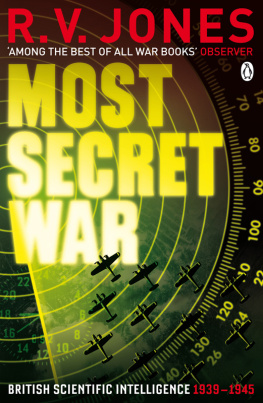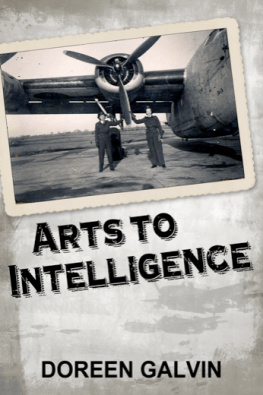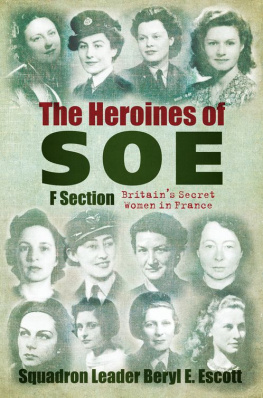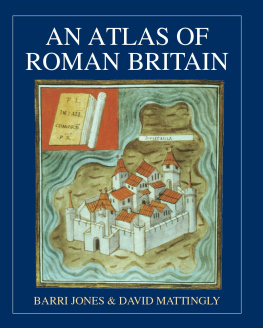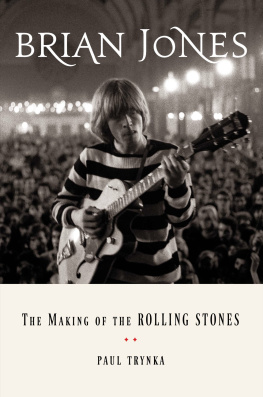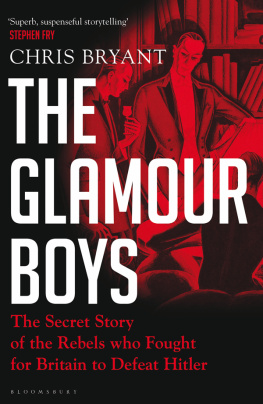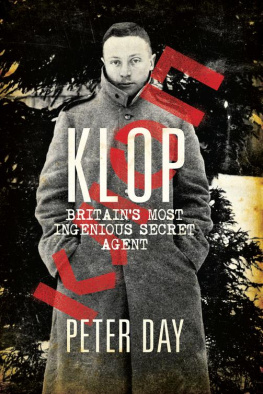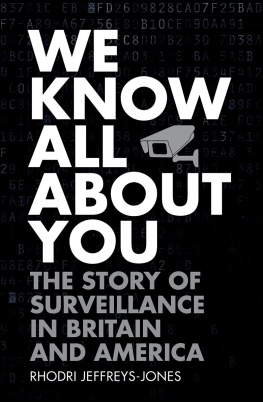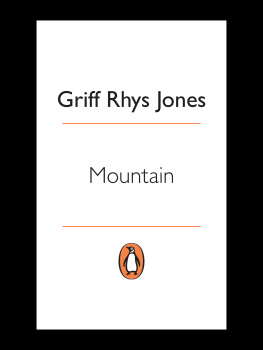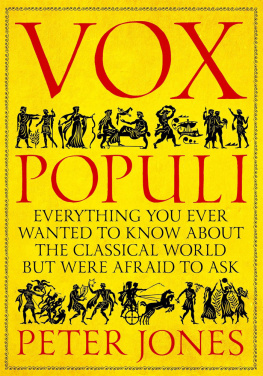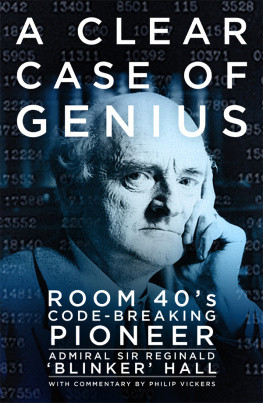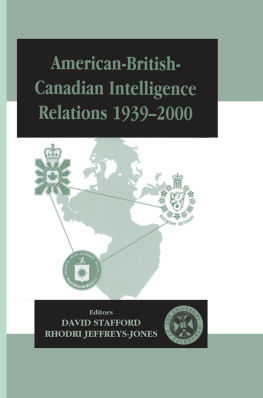Most Secret War
R.V. JONES
PENGUIN BOOKS
PENGUIN BOOKS
Published by the Penguin Group
Penguin Books Ltd, 80 Strand, London WC2R 0RL , England
Penguin Group (USA) Inc., 375 Hudson Street, New York, New York 10014, USA
Penguin Group (Canada), 90 Eglinton Avenue East, Suite 700, Toronto, Ontario, Canada M4P 2Y3
(a division of Pearson Penguin Canada Inc.)
Penguin Ireland, 25 St Stephens Green, Dublin 2, Ireland (a division of Penguin Books Ltd)
Penguin Group (Australia), 250 Camberwell Road, Camberwell, Victoria 3124, Australia
(a division of Pearson Australia Group Pty Ltd)
Penguin Books India Pvt Ltd, 11 Community Centre, Panchsheel Park, New Delhi 110 017, India
Penguin Group (NZ), 67 Apollo Drive, Rosedale, North Shore 0632, New Zealand
(a division of Pearson New Zealand Ltd)
Penguin Books (South Africa) (Pty) Ltd, 24 Sturdee Avenue, Rosebank, Johannesburg 2196, South Africa
Penguin Books Ltd, Registered Offices: 80 Strand, London WC2R 0RL , England
www.penguin.com
First published in Great Britain by Hamish Hamilton 1978
Reissued in Penguin Books 2009
Copyright R. V. Jones, 1978
All rights reserved
The moral right of the author has been asserted
Except in the United States of America, this book is sold subject to the condition that it shall not, by way of trade or otherwise, be lent, re-sold, hired out, or otherwise circulated without the publishers prior consent in any form of binding or cover other than that in which it is published and without a similar condition including this condition being imposed on the subsequent purchaser
ISBN: 978-0-14-195767-8
PENGUIN BOOKS
MOST SECRET WAR
Reginald Victor Jones was an English physicist and scientific military intelligence expert who played an important role in the defence of Britain in the Second World War. He died in 1997.
PART ONE
CHAPTER ONE
The Men Who Went First
I N 1939 I was a Scientific Officer on the staff of the Air Ministry in London, and for the past four years I had been involved in problems of defending Britain from air attack. For reasons that will later become evident I had been exiled since July 1938 to the , A. E. Woodward-Nutt: he said that he would like to see my work, and we agreed on a visit a few days later.
As I showed him the work, I sensed that there might be some deeper reason for his visit, and I told him so. He replied that there was indeed another reason: Tizard and his colleagues did not know what the Germans were doing in applying science to air warfare, and our Intelligence Services were unable to tell them. So it had been agreed that a scientist should be attached to these Services for a period to discover why they were producing so little information, and to recommend what should be done to improve matters. I thought of you, said Woodward-Nutt, and I wondered whether you would be interested. My reply was immediate: A man in that position could lose the warIll take it! We agreed that we ought to give the Admiralty Research Laboratory time to replace me and so the date for my move over to Intelligence should be 1st September 1939.
It turned out that we had hit the very day on which the Second World War started. This book is primarily an account of my part in that war, which was to attempt to anticipate the German applications of science to warfare, so that we could counter their new weapons before they were used. Much of my work had to do with radio navigation, as in the Battle of the Beams, and with radar, as in the Allied Bomber Offensive and in the preparations for D-Day and in the war at sea. There were also our efforts against the (rocket) Retaliation Weapons andalthough fortunately the Germans were some distance from successagainst their nuclear developments. In all these fields I had the ultimate responsibility for providing Intelligence, and my main object now is to describe how we built up our pictures of what the Germans were doing. But Intelligence is of little use unless it leads to action, and so I must in some vital instances also describe what went on in Whitehall before action was finally taken. These episodes brought me into contact with many of those responsible for the conduct of the war from Winston Churchill downwards. Also coming naturally into my narrative will be examples of the heroism of some of our Serving personnel and of those many helpers who joined the cause of Allied Intelligence in the Nazi-occupied territories.
As with many others who played a part in 1940, my own preparation for the Second World War started years earlier; without the experience that we had gained then, we could have done little until too late in the war. I must therefore recall some of the incidents from my earlier days that sensitized me to the work that I was about to do.
I was born on 29th September 1911; and in a sense, my earliest background was that of the Grenadier Guards. My father had served from Guardsman to Sergeant in the South African and First World Wars, and had been in the Kings Company in the last stages of the Retreat from Mons. Offered a Commission, he refused to leave his friends; he survived Neuve Chapelle, where the battalion lost sixteen out of its twenty-one officers and 325 of its men, and where he himself was to have been recommended for the Victoria Cross; two months later he was very badly wounded at Festubert in May 1915. In hospital and convalescent home for a year, he became a guard at M.I.5 headquarters and later a Drill Sergeant at Aldershot. My childhood was steeped in the Regimental tradition of discipline, precision, service, endurance, and good temper. It was steeped, too, in the experiences of the air raids on London, all of which I went through with my mother and sister. The shattered houses that I saw then, and the suspense of waiting for the next bomb, remained in my memory as the Second World War approached.
In 1916 I went to my first school, St. Judes, Herne Hill in South London. It was a Church school, and religion was of course a prominent feature: the war had plenty of examples of self-sacrifice to which our teachers could point, and I particularly remember being told of an officer who had saved his men by throwing himself onto a grenade that was about to explode. From St. Judes I went in 1919 to the one elementary school in the neighbourhood to which my mother prayed I should not be sent, Sussex Road, Brixton, because it was so rough. It certainly was tough, the future of my contemporaries encompassing everything from barrow boy to millionaire scrapmerchant and trade union peer. But I found genuine friendship and decency, and I can still talk on equal terms with some of the stallholders in London street markets. And we had devoted teachers like E. C. Samuel, a great Welshman who had taught one of my uncles before me; and despite the fact that his class numbered 55 he found time to give me personal tuition in algebra, so that I was solving simple simultaneous equations before I was ten. He told me that he himself had been to college, but that all his swans had turned out to be geese, and that he would like to see me go far. Thanks to his help, I won a London Junior County Scholarship in 1922, and went to Alleyns School, Dulwich.
But before I left Sussex Road a trivial incident occurred that helped to shape the course of my life. It was the first Boat Race after the war. However partisan the undergraduates of Oxford and Cambridge might have felt about the outcome, they were almost as conscientious objectors compared with the belligerent boys of the typical London school of the period, which temporarily split into violently opposed factions. My first acquaintance with the strife, having previously never heard of either Oxford or Cambridge, was when an older boy asked me Which are you, Oxford or Cambridge? Perhaps because he had put Oxford first, I replied Oxford. It turned out that he was Cambridge, so he promptly punched me on the nose and knocked me down. From that moment I swore undying enmity to Cambridge, and the incident may have been at least as significant as any other in the course of my subsequent career.

